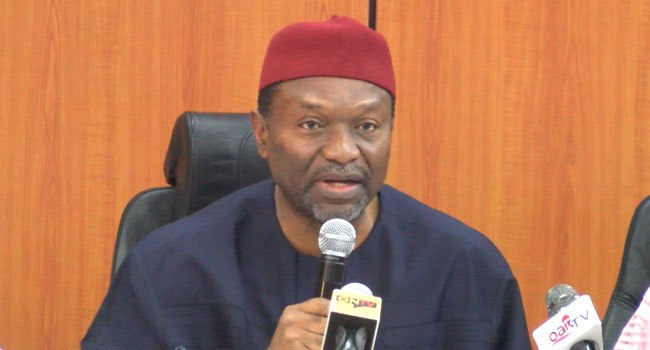
Improving healthcare is one of the priorities of the Government of President Muhammadu Buhari, and that is why in spite of the very tight revenue constraints and the demands of other competing sectors, the Health sector has continued to receive increased allocations.
The Minister of Budget and National Planning, Senator Udoma Udo Udoma, who stated this in Abuja on Tuesday while declaring open the Value for Money in Health Sector Workshop, said this can be seen in the prioritization of Health related expenditures in all the national budgets.
He explained that even with a reduction by 3.2% of the aggregate Federal Government expenditure, from N9.120trillion in the 2018 Budget to N8.83 trillion in the 2019 budget proposal, an increase of 8% was proposed in the 2019 Budget over the amounts allocated for health in the 2018 Budget. He however added that there is a need to ensure that these increased expenditures are actually improving healthcare outcomes.
“It is a workshop that will focus on how we can improve value for money. As we are able to demonstrate and show improved healthcare outcomes for the money we are currently spending, governments at all levels will be encouraged to further increase funding to the health sector.
While indicating that government will continue to be supportive of increased funding to the health sector, and would like the workshop to examine and advise on innovative ways of doing so, he stated that “it is even more critical that we institute key reforms to maximize the values derivable from the allocations to the healthcare sector through improved efficiency in the use of budgeted funds”.
He stressed that the workshop is to enable the participants to deliberate on how to achieve better outcomes for expenditure in the health sector. “This is an important issue as most developing and middle-income countries, particularly those like Nigeria with large and rapidly growing populations, need to find more effective and efficient ways of delivering quality health services to their citizens”, he added.
The Buhari Administration places a very high premium on improving health care delivery and social welfare of the people. “This is why in the Administration’s economic blueprint, the Economic Recovery and Growth Plan (the ‘ERGP’) one of the three principal objectives of the Plan is “Investing in our People”.
In particular, in the ERGP the Federal Government commits the country to investing in health and education in order to meet the international targets set under the UN’s Sustainable Development Goals (SDGs). Under the ERGP the country is committed to improving ‘the accessibility, affordability and quality of healthcare’.
The Minister drew attention to the fact that apart from the Federal Government, the various State Governments as well as Local Government Councils have also been prioritising health expenditures in their budgets since responsibility for the health sector is constitutionally shared amongst all the tiers government.
Spending by the sub-national governments, he stated, must therefore be taken into account in any assessment of the amount of public funds that is being expended in the health sector. “Indeed, no meaningful discussion about improving healthcare in Nigeria can take place without involving the sub-national governments.”
That is why the organizers of this workshop, the Collaborative African Budget Reform Initiative (CABRI), also invited State representatives to participate in the event, he pointed out. He hoped that the outcomes of the workshop will help shape public sector expenditure management practices at both the Federal and the Sub-national levels, with respect to the health sector.



